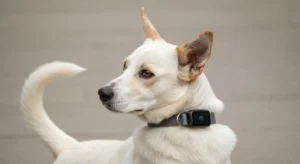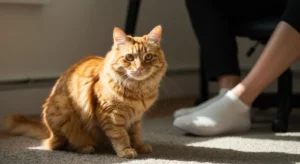For as long as I can remember, I’ve been captivated by dolphins. Not the sanitized, smiling caricatures from theme parks, but the real ones—the sleek, powerful hunters of the open ocean. They were a symbol of everything I felt my life was lacking: untamed freedom, profound intelligence, and a connection to a world deeper and more mysterious than my own. My days were a predictable rhythm of screens, deadlines, and concrete sidewalks. My world felt small, and I craved a reminder that it wasn’t.
I’d spent years watching documentaries, mesmerized by footage of them corralling fish with impossible speed or launching themselves into the air for what looked like pure joy. But watching on a screen is a passive act. It’s a curated window that keeps the wild at a safe, comfortable distance. I wanted to close that distance. I wanted to feel the salt spray on my face and breathe the same air they did. I wanted, more than anything, to experience one of those magical wild dolphins sightings for myself.
So, last spring, I did it. I booked a trip to the Azores, a volcanic archipelago adrift in the middle of the Atlantic, renowned for its rich marine life. My goal was simple, or so I thought: to see wild dolphins in their element and maybe, if I was lucky, get a photo of one leaping against the deep blue—a perfect, tangible trophy of my adventure.
The Vast, Empty Blue
The morning of the tour was impossibly bright. A small group of us, a mix of quiet hopefuls and eager tourists, boarded a rigid inflatable boat. Our guide, a weathered local named Marco with eyes that held the same deep blue as the sea, gave us a briefing. His words were not about thrills, but about respect. “We are guests in their home,” he said, his voice low and serious. “We do not chase. We do not surround them. We wait, and we watch. If they are curious, they will come to us.”
As the boat’s engine roared to life and we left the harbor behind, the land shrinking to a green smudge on the horizon, a powerful sense of insignificance washed over me. The ocean was immense, a rolling expanse of sapphire and navy that seemed to go on forever. The sun beat down, turning the water’s surface into a blinding sheet of diamonds. For the first hour, the anticipation was a palpable buzz among the passengers. Every distant splash, every shadow beneath the waves, sent a jolt of excitement through the boat.
But the ocean offered nothing. The second hour bled into the third. The initial chatter died down, replaced by a shared, meditative silence. The buzz of anticipation mellowed into a quiet resignation. My camera felt heavy and useless in my lap. The ocean didn’t feel full of life and promise anymore; it felt vast, desolate, and profoundly empty. I started to wonder if this was a fool’s errand, a naive attempt to force a magical moment that nature had no obligation to provide.
A Glimmer of Silver
“There! Eleven o’clock!” Marco’s voice cut through the hypnotic drone of the engine. Every head snapped to the left. At first, I saw nothing but the endless chop of the water. Then, a flash. A flicker of silver breaking the surface, followed by another, and another. It was a pod of common dolphins, moving fast and with purpose about two hundred yards away.
A wave of pure, unadulterated joy surged through me, chasing away the afternoon’s lethargy. This was it. Marco cut the engine, and the sudden silence was startling. All we could hear was the gentle lapping of water against the hull and the distant, rhythmic sound of the dolphins breathing as they surfaced. They were beautiful, more muscular and vital than any video could convey. They moved as one organism, a fluid ribbon of life weaving through the waves.
They were heading parallel to us, clearly on a mission. I fumbled for my camera, my hands shaking slightly. I zoomed in, trying to frame the perfect shot, my mind racing to capture the image I had held in my head for so long. They were close enough now that I could see the intricate yellow and grey patterns on their flanks. They were magnificent, a breathtaking spectacle of wild grace. This, I thought, was everything I had come for.
And then, something shifted. The spectacle was about to become an encounter.
The Shift: From Spectacle to Encounter
As if guided by a silent command, three dolphins broke away from the main, fast-moving pod. They changed course, turning directly toward our motionless boat. The energy changed instantly. This was no longer us observing them from afar; this was them choosing to investigate us. My heart hammered against my ribs.
One of them, a large adult with a nick in its dorsal fin, swam right up to my side of the boat. It slowed, its sleek body gliding effortlessly in the water just a few feet away. And then it did something that stopped my breath. It rolled onto its side, angling its body so that one eye was completely out of the water, and it looked directly at me.
I lowered my camera. To hold a lens between us felt like a profound betrayal of the moment. I had expected to see a dolphin’s eye, but I was not prepared for what it felt like to be seen by one. It wasn’t the flat, vacant eye of a fish. It was dark, ancient, and filled with an undeniable intelligence. There was no fear in it, only a calm, unnerving curiosity. It was a look that seemed to bypass my eyes and peer directly into my mind. In that split second, the roles were completely reversed. I was no longer the observer. I was the observed. I was the strange, alien creature in the noisy, floating shell, and this powerful being of the sea was taking my measure.
The feeling was dizzying. I felt an overwhelming sense of being known, of being assessed by a consciousness so different from my own, yet somehow recognizable. A silent question hung in the air between us: What are you?
Another dolphin, a mother, swam nearby with a small calf tucked tightly by her side. She kept her body between her baby and the boat, a clear gesture of protection, yet she didn’t flee. She held her position, allowing her calf to peek at the strange visitors. It was a lesson in trust and caution, a moment of parenting unfolding in a world entirely separate from ours. I could hear their clicks and whistles now, not through the air, but as faint vibrations traveling through the boat’s hull—a complex, private conversation I could never hope to understand.
A Lesson in Being Present
That first dolphin held my gaze for what felt like an eternity, though it was probably only ten seconds. Then, with a slow, deliberate blink, it rolled back over and submerged, a perfect swirl of water marking its departure. The other two followed, and they rejoined their pod without a backward glance.
I finally let out a breath I didn’t realize I’d been holding. My entire body felt electric. The desire to take a picture, to document the moment, had completely vanished. Trying to capture that feeling in a photograph would have been like trying to catch the ocean in a bucket. It was futile. The experience wasn’t in the image; it was in the feeling of connection, of mutual respect between two species.
The surprise wasn’t the sight of the dolphins. It was the depth of the interaction. I had come expecting a show, a thrilling display of animal behavior. What I received was an audience. I had expected to feel excitement and awe, and I did. But beneath that was a profound sense of humility. My life, my worries, my carefully constructed sense of self—it all seemed so small and fragile in the face of that ancient, intelligent gaze.
They taught me that a true wild dolphin encounter isn’t about seeing them leap; it’s about the privilege of being allowed into their world, even for a moment. It’s about recognizing them not as objects of our entertainment, but as fellow inhabitants of this planet, with lives as complex and meaningful as our own.
A Final Farewell
The pod continued on its way, soon becoming distant specks again before vanishing completely into the vastness of the Atlantic. The ocean was quiet once more. But it no longer felt empty. It felt charged with mystery, brimming with a life and consciousness that I had now felt firsthand. The boat ride back to the harbor was subdued. I didn’t look at the photos on my camera. I didn’t need to. The most important image was burned into my memory: a dark, knowing eye looking out from the water, asking a question I would spend the rest of my life trying to answer.
I came to the Azores looking for a spectacle, a story to tell, a photo to frame. I left with something far more precious. I left with a feeling of having been seen, of having made a connection across an impossible divide. My trip to see wild dolphins taught me the most surprising lesson of all: that the most profound moments in nature aren’t about what we see, but about when we are still enough, and humble enough, to be seen in return.












